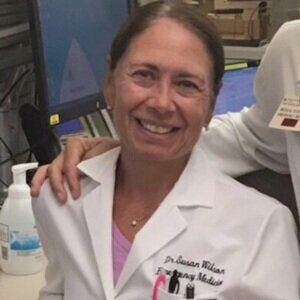Wow… The COVID-19 pandemic has impacted everyone, especially those of us in healthcare. Our way of practicing medicine has been changed – some would say forever. We find ourselves impacted both clinically and emotionally. As a result, clinicians are experiencing more stress and anxiety than ever before. These feelings are not new, but have been heightened in the face of the pandemic.
Physicians are perceived as self-reliant, emotionally stoic, and pillars of the medical community. Society expects perfection from our healthcare system, and turns to us in times of medical crisis. We as clinicians need to recognize our humanity. Doctors are people too, with the same emotional needs as any other individual. In fact, one could argue that the demands of medicine require an even greater level of emotional support than other professions.
How Physicians are Affected
So what can we do? First, it is important to acknowledge where the emotional stress comes from so we can understand how to deal with it. The term “Second Victim Syndrome” was first coined by Dr. Albert Wu in 2000 (1). This refers to the phenomenon of a clinician becoming victimized by an unanticipated adverse medical event. The patient is the primary victim, but the clinician is affected secondarily. This syndrome can impact all members of the healthcare team, including doctors, mid-level providers,nurses, therapists, pharmacists, and techs. Up to 50% of healthcare professionals will experience SVS at some point in their career. A recent survey of surgeons found that in the previous year, 80% of them experienced an adverse event in the OR. Examples include sudden death, missed diagnosis, medication error, complication of procedure, and malpractice lawsuits. These events trigger physical, mental, and emotional reactions, which in turn impact the ability of the clinician to perform at his/her optimal level. In fact,SVS has been associated with increased rates of burnout, substance abuse, and even suicide (2).
Turning to Peer Support
Now that we’ve identified what affects us, how do we address these issues?
This is where peer support becomes a vital part of the picture. As the name implies, peer support is just that: emotional support from colleagues to help the clinician navigate through the signs and symptoms of SVS. This assistance is provided through confidential, non-judgmental sessions wherein the clinician is afforded a “safe space” to discuss his/her feelings. Peer supporters are trained individuals. Techniques of active listening and open-ended questions allow the clinician to debrief, often gaining insight into their emotional state. The goal is to buoy the clinician through the acute event, providing “emotional first-aid” as the initial step to recovery.
Where Can we Find Peer Support?
Although some healthcare facilities are offering this service, many still do not. Further, a truly confidential, anonymous conversation is the most powerful peer support we can receive. As a certified physician peer coach, I am trained to provide this support, and am available 12 hours a day, 7 days a week. Acknowledging that we are not invincible super humans is an important first step towards achieving the emotional fitness that we all deserve. Remember, our responses as “second victims” are the normal reactions of human beings, and as such deserve compassion and support from our colleagues!
The SurgeonMasters community provides a supportive, nonjudgmental, and enriching environment for personal and professional development.
Complete this form to speak confidentially with me or another SurgeonMasters Peer Support Coach.
Hear from Susan in her own words about Peer Support:
Susan Wilson, MD

Dr. Wilson has been practicing Emergency Medicine in the greater Milwaukee area since 1994. Having experienced second victim syndrome in her own career, she knows firsthand how important peer support can be. Now retired from clinical practice, Dr. Wilson is a certified physician peer coach, devoting herself to issues of burnout, job satisfaction, and peer support for her clients.
Sources:
